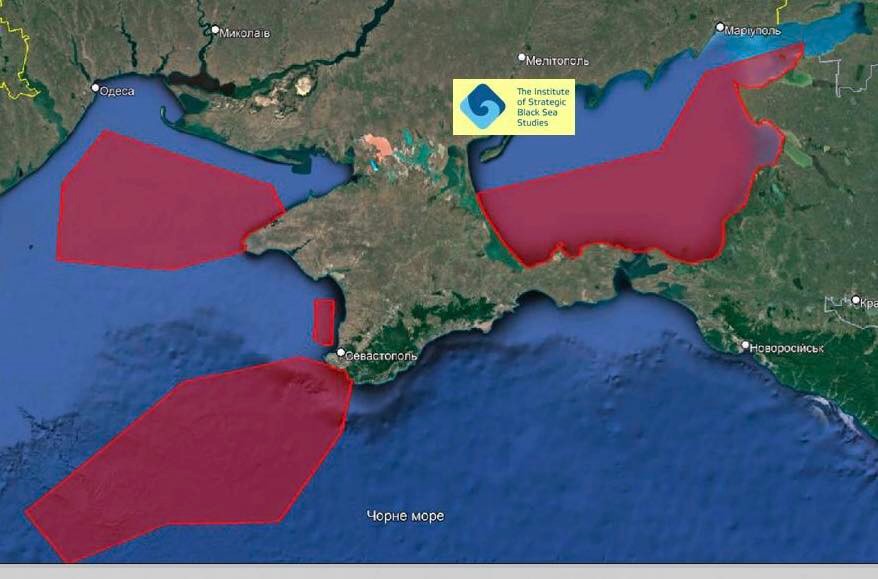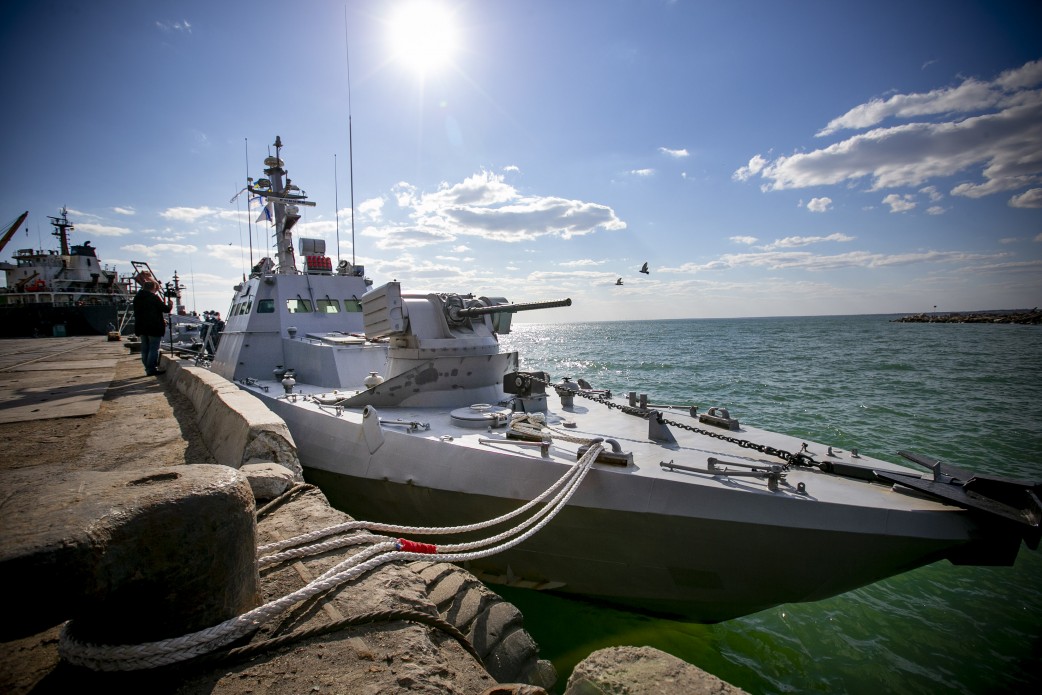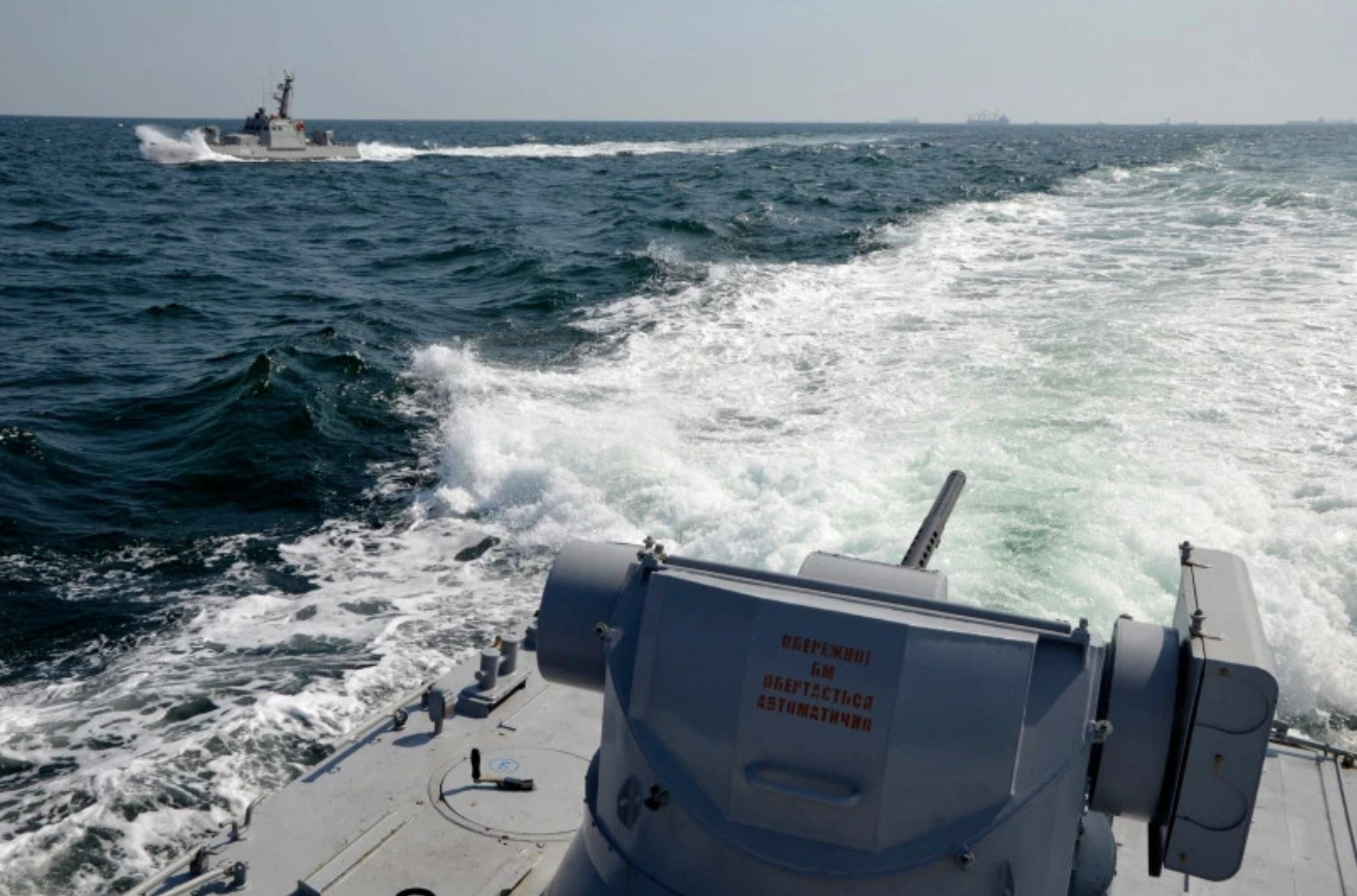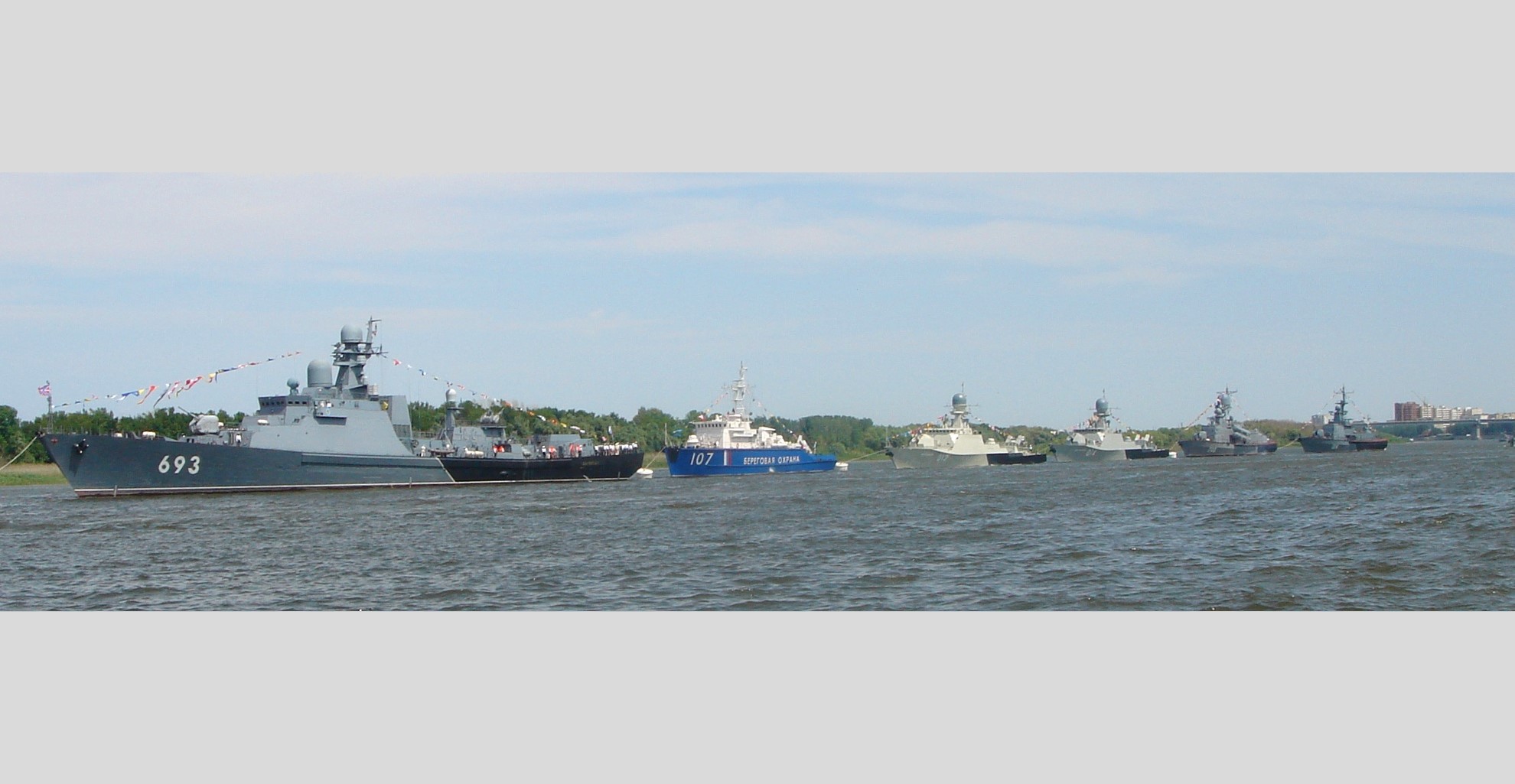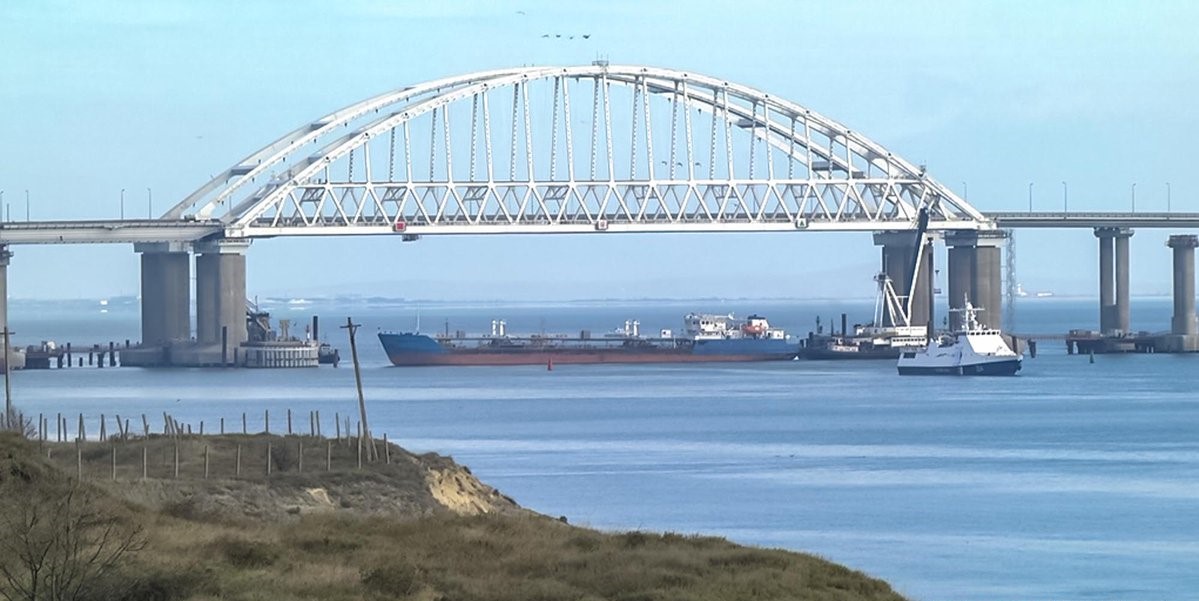Ukraine condemned Russia's planned blockade of parts of the Black and Azov seas under the pretext of military exercises after Russia announced maneuvers on 13-19 February, which would block the waters of the two seas for Ukraine.
For the seven days, Russia will completely block half of the Azov Sea, leaving no possibility for ships to leave the ports of Berdiansk and Mariupol for the Black Sea and sealing international routes to Ukrainian seaports.
Six large landing ships from the Baltic and Northern Fleets of the Russian Navy will be present in the Black Sea during the announced Russian maneuvers.
International lawyer Oleksandr Kalinichenko outlines two ways how Ukraine can secure the risks of the possible Russian blockade of the Black and Azov Seas.
Ukraine's protest
The Foreign Ministry of Ukraine in its statement of 10 February
condemned the Russian decision to block large swaths of two seas and the Kerch Strait, the only waterway connecting the Sea of Azov to the Black Sea.
"Unprecedented coverage of maneuvers makes navigation in both seas virtually impossible. In essence, this is a significant and unjustified complication of international shipping, especially trade, which can cause complex economic and social consequences, especially for the ports of Ukraine," the statement reads.
The Ministry says that Russia violates international law with this decision,
"Such aggressive actions of the Russian Federation, which fit into the concept of its hybrid war against Ukraine, are unacceptable. This is a manifestation of open disregard for the norms and principles of international law, including the UN Charter, UN General Assembly resolutions, and the UN Convention on the Law of the Sea."
Moscow moving 15 warships from Caspian Sea to waters off Ukraine
How to mitigate the risks of Russia's blockade of Black and Azov seas for Ukraine
Given that NATO's strategic planning has paid considerable attention to the Baltic Sea in recent years, the need for the Alliance's comprehensive Black Sea Defense Strategy is now clearer than ever.
Unfortunately, NATO's current strategy to deter Russian aggression in the Black Sea region is inadequate.
Ukraine should actively work to enter the Black Sea security option in the NATO 2030 Strategic Concept, with an emphasis on effective partnerships to ensure merchant shipping and protect critical port infrastructure from aggression.
The effective Montreux Convention Regarding the Regime of the Straits of 1936, which gives Türkiye control over the Bosphorus and Dardanelles, makes it difficult to maintain NATO's continued presence in the Black Sea, as Ankara imposes significant restrictions on the number, transit time, and tonnage of naval vessels.
Russia rapidly moving landing ships, submarines of Baltic, Northern & Pacific fleets to Black Sea
The Convention's paragraph 2 of Article 18 goes as follows:
"Vessels of war belonging to non-Black Sea Powers shall not remain in the Black Sea more than twenty-one days, whatever be the object of their presence there."
On the one hand, this limits the potential of the Alliance's missions; on the other hand, it strengthens the role of Ukraine and Georgia as Black Sea partners. It allows the development of Ukraine's Navy through cooperation with Allies.
It is also worth recalling that in late March last year, Turkish authorities approved a plan to build an artificial sea route known as the Istanbul Canal, which will become Türkiye's alternative to the Bosphorus, and be under Türkiye's full sovereignty, outside the Montreux Convention. The construction of the Istanbul canal is planned to be completed in 6 years.
In the event of an escalation of the situation in the Black Sea by Russia in the coming months, Ukraine must apply all the instruments of international law.
First of all, Ukraine should initiate consideration of the violation of the UN Convention on the Law of the Sea due to Russia's aggressive actions in the Black Sea, which lead, inter alia, to the blocking of maritime communications, at the United Nations.
Russia closing off more of Black Sea even as it pulls its land forces back from Ukrainian border
The grounds for Türkiye's closure of the Black Sea Straits to ships of the aggressor-state, as set out in Article 19 of the Montreux Convention
, should also be considered a lever of influence. These provisions concern the procedure for the passage of "vessels of war belonging to belligerent Powers" through the Black Sea Straits. Such ships, as stated in the Convention, "shall not pass through the Straits except in cases..."
There are significant disadvantages to this situation.
- First, this includes ships of all parties to a possible armed conflict without division into an aggressor state and the victim of aggression.
- Secondly, according to the Montreux Convention, it is necessary to establish the fact of the existence of an armed conflict and its parties.
If UN Security Council would qualify this as aggression, Türkiye may take into account such a statement and, accordingly, apply the mechanisms provided for in Article 19 of the Convention. However, given the prospect of a veto by at least two permanent members of the UN Security Council (Russia, China), such a resolution should not be expected, even if China's veto may be in question given the structure of mutual trade with Ukraine and the dependence of supplies on the work of Ukrainian ports.
This means that without the UN Security Council's decision, the qualification of actions of "belligerent states" according to the Convention remains at the discretion of Türkiye as a state that exercises effective control over the Black Sea straits. Naturally, this will be Ankara's political decision.
However, any international norm or decision is worthless without tools of its implementation and coercion. The only tool in the field of security in the Black Sea region capable of deterring Russia's aggression is NATO.
In the preparation and planning of such an operation, first of all, it is necessary to ensure the permanent presence of the fleet of the Black Sea NATO states (given the limitations of the Montreux Convention) in the territorial waters of Ukraine. These can be pre-arranged exercises at the initiative of the Ukrainian party.
If Ukraine were to enact such a deterrent and announce a program of joint actions with NATO, this would increase the chances of preventing Russian aggression on Ukraine's Black Sea coast, and thus avoid overcoming its multibillion-dollar economic and humanitarian consequences.
 Oleksandr Kalinichenko is an international lawyer and head of the Notes of the Atlantist project.
Oleksandr Kalinichenko is an international lawyer and head of the Notes of the Atlantist project.
Read more:
- Four ways NATO can help Ukraine resist Russian aggression
- Russia rapidly moving landing ships, submarines of Baltic, Northern & Pacific fleets to Black Sea
- Russia closing off more of Black Sea even as it pulls its land forces back from Ukrainian border
- Russia violating international law by closing Kerch Straits to naval vessels until October, Kyiv says
- “Black Sea mosquito fleet”: how the UK will help Ukraine regain its naval footing (2020)
- Ukraine signs Memorandum to modernize its Navy, new partnership and trade agreement with the UK
- Moscow moving 15 warships from Caspian Sea to waters off Ukraine
- Russian attack on Ukrainian ships: who has a right to do what in the Azov Sea (2018)
- Russia takes 24 prisoners of war after attacking Ukrainian ships in Azov, televises “confessions”

